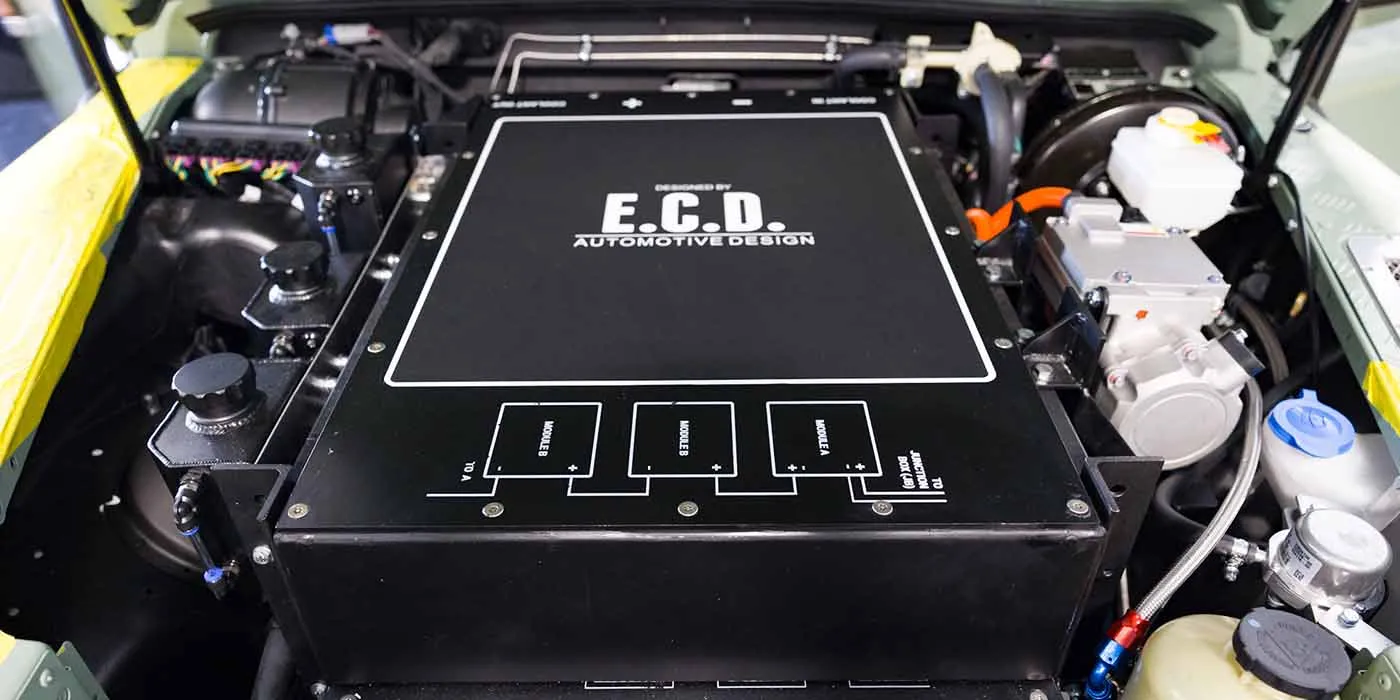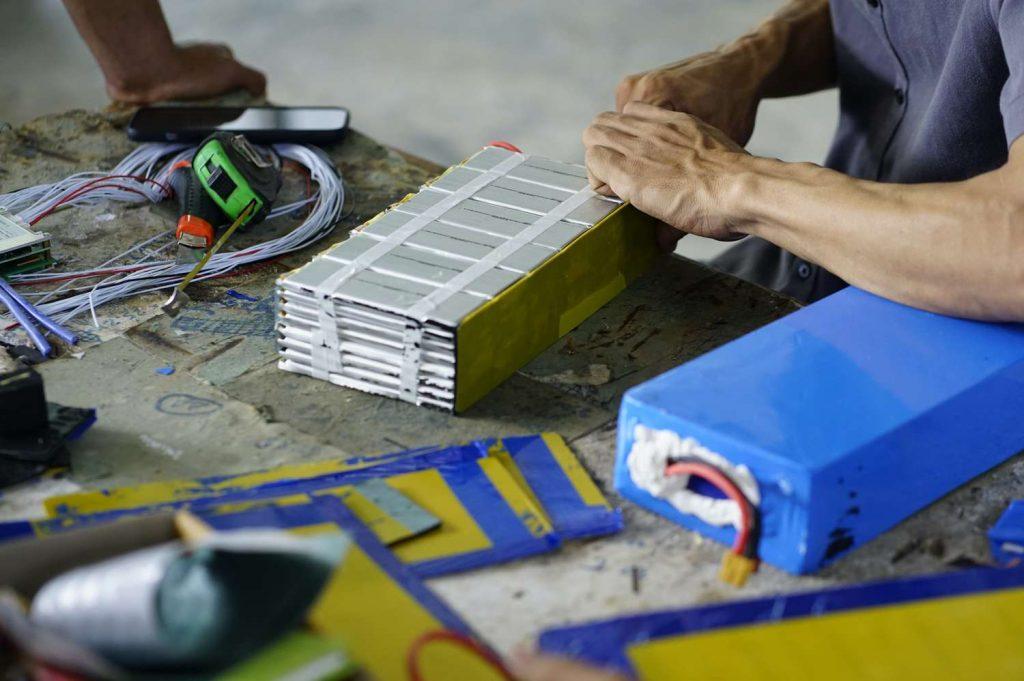What is the Best Car for EV Conversion?
By Sebastian Orellana
Updated Feb 17, 2024

Electric Vehicle (EV) conversion is becoming increasingly popular due to its potential for environmental and economic benefits. EVs are powered by batteries rather than gasoline, producing zero emissions and requiring less maintenance than traditional cars. Furthermore, EVs can be more cost-effective and require less insurance than gas-powered cars.
Table of Contents
However, choosing the right car for conversion is critical, as the process can be expensive and time-consuming. This post will examine the different factors to consider when selecting the best car for EV conversion.
READ: Understanding the Cost Breakdown of DIY EV Conversion
Types of Cars for EV Conversion

When selecting the best car for EV conversion, several different types exist. The most common type is an internal combustion-powered car, such as a sedan or hatchback. These cars are the easiest to convert, as they already have the most parts and components. However, they require more space to install the electric motor, battery, and other components.
Another type of car for EV conversion is a hybrid vehicle. Hybrids are designed to run on gasoline and electric power, making them an excellent choice for those looking to convert to EV. The advantage of a hybrid is that it can offer better fuel economy and can be converted more quickly and efficiently than a traditional car. However, hybrid vehicles are more expensive and difficult to find parts for.
Finally, there are kit cars. Kit cars are designed for conversion to electric power and come with the necessary components for the conversion process. Kit cars are often more affordable than traditional cars, and they come with the parts and instructions needed to complete the conversion. However, kit cars are typically smaller and may not offer the same performance as a traditional car.
Battery Technology
The type of battery used in an EV is a critical factor to consider when selecting the best car for conversion. The most common type of battery for EV conversion is the lithium-ion battery. These batteries are lightweight, powerful, and efficient, making them an excellent choice for EV conversions. Additionally, these batteries are relatively easy to install and maintain.
Lead-acid batteries are another type of battery used in EV conversions. These batteries are more affordable than lithium-ion batteries but are heavier and less efficient. Lead-acid batteries also have a shorter life span and require more maintenance than lithium-ion batteries.
Finally, there are nickel-metal-hydride (NiMH) batteries. These batteries are similar to lead-acid batteries but are lighter and more efficient. NiMH batteries are also more durable and require less maintenance than lead-acid batteries. However, they are more expensive than lead-acid batteries and may not offer the same performance as lithium-ion batteries.
Motor Power
The type of motor used in an EV conversion is also an essential factor to consider. The most powerful type of motor is the induction motor. Induction motors are efficient and powerful, making them ideal for high-performance EVs. However, induction motors are more expensive than other motors and require more maintenance.
Another type of motor is the brushless DC motor. These motors are quieter and more efficient than induction motors, making them a great choice for those seeking a quieter ride. However, brushless DC motors are more expensive than induction motors and may not perform similarly.
Finally, there are permanent-magnet motors. These motors are the least expensive option and are relatively easy to install. Permanent-magnet motors are also quieter and more efficient than others, making them an excellent choice for those seeking an economical EV conversion.
Vehicle Weight
The vehicle's weight is another crucial factor to consider when selecting the best car for EV conversion. The heavier the vehicle, the more power it will require to move. Therefore, choosing a car that is light enough to be powered by the selected motor is essential. Additionally, the vehicle's weight will affect the range of the EV, so it is essential to consider the weight when choosing the size of the battery.
Conversion Cost

The cost of an EV conversion is another essential factor to consider. The conversion cost will vary depending on the type of vehicle and components chosen. For example, kit cars may be more affordable than traditional ones, as they already have the necessary features. Additionally, the conversion cost may be affected by the price of the components, such as the battery and motor.
READ: Life-cycle Analysis of Electric Vehicles and Their Environmental Impact
Safety Considerations
When converting an internal combustion-powered car to an EV, safety is paramount. Ensuring all components are correctly installed, and the wiring is safely routed is essential. Additionally, it is essential to use high-quality ingredients tested and certified for safety.
DIY or Professional Installation

When converting to an EV, it is essential to consider whether to do it yourself or hire a professional. DIY conversions can be less expensive but require more time and effort. Additionally, it is essential to ensure the conversion is done correctly and all components are properly installed. Professional installers can ensure that the conversion is done safely and correctly, and they can provide advice and guidance throughout the process.
READ: Electric Truck Conversion Kit
Benefits of an EV Conversion
Converting to an EV offers several potential benefits. The most obvious benefit is the environmental benefit, as EVs produce zero emissions. Additionally, EVs can be more cost-effective, require less maintenance, and can be powered by renewable energy sources. Furthermore, EVs can offer a quieter ride and perform better than a traditional car.
In conclusion, selecting the best car for EV conversion is complex. It is essential to consider the type of car, the battery and motor technology, vehicle weight, conversion cost, safety considerations, and whether to do the conversion yourself or hire a professional. The potential benefits of EV conversion, including environmental and economic savings, make it an attractive option for those looking to make the switch.
